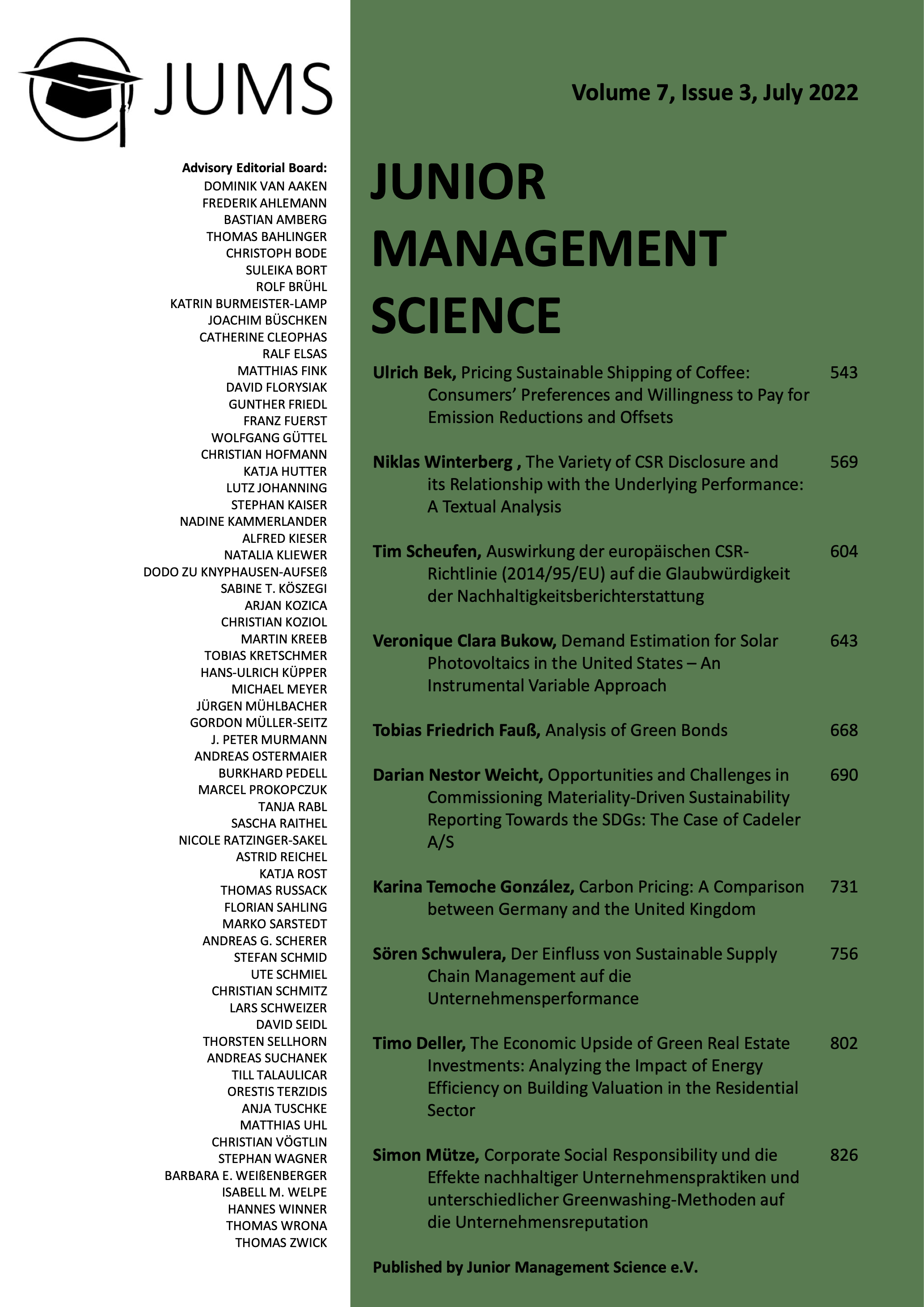Abstract
This study examines the relationship between corporate social responsibility (CSR) disclosure and the underlying CSR performance. The linguistic features of integrated and stand-alone sustainability reports from companies listed in the STOXX Europe 600 between 2010 and 2018 are investigated using computer-based textual analysis. The observed textual features are as follows: length, numeric content, horizon content, target orientation, readability, tone, topic-specific disclosure, and the number of topics covered. Additional variables include whether the report is following the framework of the Global Reporting Initiative (GRI), whether the CSR information is integrated into the annual report or prepared as a stand-alone report, and whether the company is defined as an early or late adopter. Concerning the relationship between the textual characteristics and CSR performance, the results support the hypotheses that length, target orientation, and the number of GRI topics covered are positively correlated with the performance. Concerning topic-specific disclosure, only the environmental and social dimensions are positively correlated with the corresponding performance. The results also reveal that companies with superior CSR performance tend to publish stand-alone reports under the GRI framework and started reporting before the announcement of the EU Directive in 2014.
Keywords: Corporate social responsibility; sustainability; sustainability reporting; textual analysis; GRI.

This work is licensed under a Creative Commons Attribution 4.0 International License.

